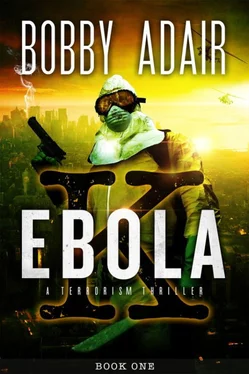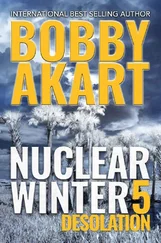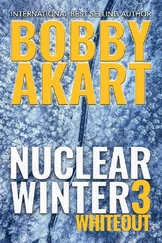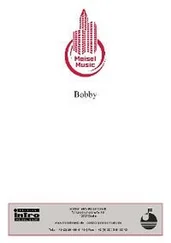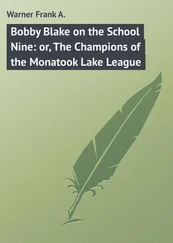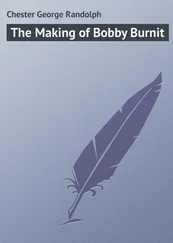It occurred to Austin in that moment that he should be dead already.
Austin felt the weight of someone sitting down behind him on the cot. With all the slow care he could use to keep his stomach from spewing whatever remained there, he rolled onto his back. One of the guys in yellow Tyvek was sitting beside him, looking down.
Through the goggles Austin saw medium brown skin, black eyebrows, and familiar black eyes. “Rashid?”
“You are Austin.” It wasn’t Rashid’s voice, but his brother’s older, harsher voice.
“Najid?” Austin asked. “Why?”
“You did me a kindness.”
Austin was confused. He was asking why Najid was in Kapchorwa with gunmen, why he’d killed Nurse Mary-Margaret—not for a moment of warm, fuzzy emotional shit. What the hell was he doing?
Najid said, “You are a friend of Rashid’s. You telephoned me out of concern for him. I returned the kindness by not having you killed.”
Austin tried to put the words “fuck you” together, but was having trouble getting his mouth to cooperate.
“Not that it matters. You’ll soon be dead I suspect. It seems that nearly all who are in the advanced stages of the disease are dying.”
Austin looked to his left to see the ward.
Guessing the question, Najid answered in a detached voice. “Forty-eight so far.” He looked to the other end of the ward. “The doctor says another ten or twelve will go within the hour.”
To his right, Austin saw Rashid lying on the cot next to his. A HAZMAT guy—the doctor, Austin guessed—sat beside Rashid doing some kind of exam.
Najid’s voice grew sad, and he shook his head. “Rashid has a better chance than the rest of you. He is getting the best medical treatment available under the circumstances.”
“But—” That was the entirety of the question Austin had the energy to put together.
“It’s not fair?” Najid shook his head, exaggerating the gesture. “No, it’s not fair. Rashid gets care that will double or triple his chances of surviving, and you—“ Najid paused, “lying right next to him, in fact, lying right next to a box that contains enough drugs to treat you and maybe a dozen others—get nothing. Do know why?”
Because you’re a piece of shit. But those words couldn’t find a voice either.
“That is exactly what is going on now. American doctors with Ebola have been flown out of Liberia and are responding well to a new American miracle drug. The supply is small and the price is high. So poor Africans don’t get it. They die. That is the world, Austin. You don’t understand it because you have been a rich American all your life, and you have had more of everything than you ever needed, while others suffered to provide it for you. At this moment, that is no longer the case. Rashid has more drugs to treat this disease than he will ever need. And you have nothing. The sadness of the world’s reality looks different from this perspective, doesn’t it?”
Austin slowly shook his head.
Najid laid a gloved hand on Austin’s arm. “I know you will not believe this, but I do hope you live. That is why I had my men carry you off the mountain. Do not run again. Our activities here must be kept secret and the value of the kindness you showed does not compare to that need.” Najid took his hand off Austin’s arm, turned to the doctor in the yellow Tyvek suit, and started speaking in Arabic.
“Will he live?” Najid asked the doctor, using the convenience of his native tongue to hide the conversation from Austin.
“There is no way to tell. I do all that I can. There is no cure for Ebola, you know that.” Dr. Kassis stood up, took a syringe, and injected some medicine into Rashid’s IV. “All I can do is treat the symptoms and try to keep the symptoms from killing him.”
“What is that drug you just injected?”
“It is an anticoagulant,” replied the doctor.
“An anticoagulant? That does not make sense to me. It is my understanding that hemorrhagic fever causes one to bleed until he dies.”
“Yes, but it is more complex than that.”
“How so?” Najid leaned forward. He needed to know as much as he could about the disease he was hoping to unleash on the West.
Dr. Kassis sat back down. Without waking Rashid, he checked his temperature with an infrared scanning thermometer. “The process is complex. In the early phases of the disease, blood clots form and float freely in the bloodstream. These clots clump together and clog small veins.”
“Like a stroke?” Najid asked.
“Exactly like a stroke. That explains the dementia symptoms we see in Ebola and Marburg patients. Parts of the brain are deprived of oxygen and cease to function correctly. When the oxygen supply is cut off for too long, that part of the brain dies.”
Najid shook his head and laid a gloved hand across Rashid’s forehead.
“Just as importantly, the clots form in the liver, the kidneys, the lungs, the intestines—all of the organs, even the heart.”
Najid nodded. “That is why you give him the anticoagulant, to stop that process?”
“Exactly right.” Kassis said. “If we can stop the clotting, we have a chance when we reach the next phase of the disease.”
“The bleeding?” Najid asked.
“Yes. The bleeding occurs because the blood has run out of coagulants. That coincides with tissue death all over the body. Where the tissue has died, eventually it bleeds.”
“Everywhere,” Najid concluded.
“Yes. Everywhere. It flows from every orifice, catastrophically. However, if we can use the anticoagulants to limit the damage from the clotting, we can later use coagulants to limit the bleeding. We keep him hydrated in the mean time and hope what we are doing helps.”
“So, anticoagulants to reduce the damage, and later coagulants to keep him from dying,” Najid summarized, more to get it straight in his own mind than to let Dr. Kassis know he understood.
“Yes,” replied Kassis.
“How do you know when to stop using one and start using the other?”
“That is my job, Najid.”
“I trust your judgment.” Najid looked down for a long time at his brother, imagining the sorrow his father would feel to lose him. It would be worse because his father was the one who had forced Rashid to spend his summer in Africa, seeing what life looked like from the other side.
“When Ebola has spread the world over, do you have a plan for how we will survive?” Dr. Kassis asked.
Najid looked up at the doctor. “The Western countries will develop a vaccine or an effective treatment. They have the technology and the experience. As we discussed, it is only a matter of time. When that time comes, we will buy enough for ourselves.”
Dr. Kassis raised an eyebrow, hidden under his goggles. “And if the Americans won’t sell it?”
“The Americans likely won’t, but I am converting my father’s fortune to gold. There will never be a time in this world when I won’t be able to find a man willing to sell his soul for a handful of gold.”
“Gold? How so?”
“I have instructed our man in Switzerland to sell everything, purchase gold bullion, and have it shipped to my father’s compound within the next few days. Gold will be the only currency with value when the world economies fall apart. My family may come out of this as the wealthiest on the planet. I have little doubt that I can pay corrupt Americans for all we need.”
Dr. Kassis adjusted his mask. It was becoming a habit, along with the fear of not knowing which was worse, an ill fitting mask, or a snug mask being touched by contaminated hands. “It is possible that gold will be worthless? It may be that only bullets, water, and food will have value.”
Читать дальше
